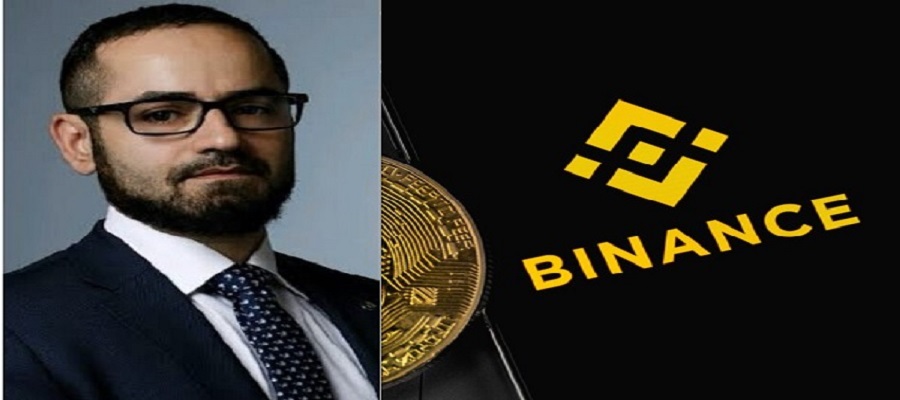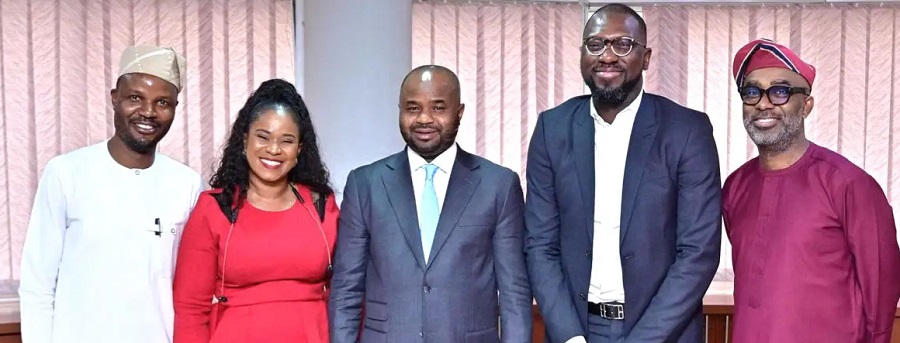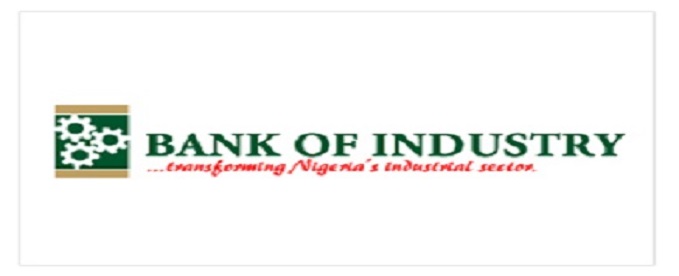E-Financial
AfDB Issues First “Light Up and Power Africa” Theme Bond

The African Development Bank (AfDB) has issued the first “Light Up and Power Africa” Bond for SEK 733 million (approximately JPY 10 billion) sold to the Dai-ichi Life Insurance Company, Limited, the sole investor in the transaction.
The “Light Up and Power Africa” Bond supports AfDB’s ambition to achieve an important goal of realizing Africa’s energy potential and bridging the continent’s energy deficit.
Over 645 million Africans have no access to energy. The electricity access rate for African countries is just over 40 percent, the lowest in the world. This undermines efforts to lift Africans out of poverty. Access to energy is crucial for the attainment of health and education outcomes, reducing the cost of doing business, unlocking economic potential, and creating jobs.
Over 90% of Africa’s primary schools lack electricity while 600,000 Africans die each year due to a lack of clean cooking energy. Insufficient energy access handicaps the operations of hospitals and emergency services; compromises educational attainment; and drives up the cost of doing business.
Energy access for all is therefore one of the key drivers of inclusive growth as it creates opportunities for women, youth, and children in urban and rural areas. The aspirational goal of this priority area is to help the continent achieve universal electricity access by 2025 with a strong focus on encouraging clean and renewable energy solutions.
This will require generating 160 GW of new capacity, 130 million new on-grid connections, 75 million new off-grid connections and providing 150 million households with access to clean cooking solutions.
As part of this effort, “Kenya’s Last Mile Connectivity Program II”, an energy project that provides access to electricity in Kenya, aims to provide electricity to 1.5 million people mainly from low-income groups and micro-enterprises that improve living standards and support economic growth.
Hassatou N’Sele, Acting Vice President, Finance and Treasurer of the AfDB Group, says – “Our mission is the sustainable development of Africa and our core priorities are the High 5’s: “Light Up and Power Africa”; “Feed Africa”; “Industrialize Africa”; “Integrate Africa” and “Improve the Quality of Life for the People of Africa”.
We would like to thank Dai-ichi Life for their interest and investment in “Light up and Power Africa” Bond. Their role in this transaction is helping towards our goal of attaining universal electricity access by 2025, with a strong focus on encouraging clean and renewable energy solutions.”
The AfDB will use its best efforts to direct an amount equal to the net proceeds of the issue of the Notes to lending projects within the strategic “Light Up & Power Africa” priority, subject to and in accordance with the AfDB’s lending standards.
The proceeds of the Notes will be included in the ordinary capital resources of the AfDB and will be used for the general operations of the Issuer in accordance with the Agreement Establishing the African Development Bank.
The Bond was offered to Dai-ichi Life in a private placement format with Deutsche Bank AG as the sole arranger of the bond.
E-Financial
Nigeria Still Open Crypto Business despite $80Bn Lawsuit against Binance – FG

Federal government is still open to crypto businesses operating in the country despite the ongoing lawsuit against Binance, crypto exchange and the high-profile detention of Tigran Gambaryan, Binance executive.

Mohammed Idris, minister of Information, said Friday, that the lawsuit was part of the government’s effort to strengthen regulations, not to target specific companies.
“This is part of the effort to strengthen our laws, not to cripple anybody. We are ensuring that no one comes and operates without regulation,” Idris told the outlet.
Nigeria filed an $81.5 billion lawsuit against Binance in February, claiming the exchange crashed Nigeria’s local currency, the naira, and said that Binance owed $2 billion in back taxes as the Nigerian government continues to grapple with sensible crypto policy.
“We are ensuring that no one comes and operates without regulation,” Idris said, noting that other crypto companies in Nigeria continue to operate without facing legal challenges.
“There are other companies operating in the crypto sector in Nigeria, you don’t see them [facing charges],” he added.
Idris also highlighted concerns over the potential misuse of cryptocurrency for illicit activities, including terrorism financing, money laundering, and tax evasion.
He pointed out that the issue of illicit financial flows is a global concern, stressing the importance of international cooperation to ensure that transactions in the crypto space align with financial regulations.
“It is not just Nigeria. Internationally it’s also important to address illicit financial flows. You can’t have a huge amount of transactions that do not meet the operations of financial dealers,” Idris said.
E-Financial
FIRS Partners Flutterwave for Digital Payment Collection

Flutterwave, Africa’s leading payments technology company, is now enabling digital tax collections for the Federal Inland Revenue Service (FIRS), making it one of the few fintechs supporting the government in modernizing tax payments.

L-R: Mr Gbenga Badejo; Mrs. Olufunmilayo Olaniyi, Senior Vice President, Business Development, Flutterwave; Dr. Zacch Adedeji, Chairman, FIRS; Mr. Olugbenga ‘GB’ Agboola, Founder and CEO, Flutterwave and Mr Oluwabankole Falade, Chief Legal, Regulatory Affairs & Public Policy Officer.
This development allows the FIRS to leverage Flutterwave’s seamless and secure payment infrastructure to collect taxes, levies, and other payments from businesses and individuals across Nigeria.
Flutterwave’s payment technology simplifies tax payments for individuals, Small and Medium Enterprises (SMEs), and large corporations, ensuring a fast, transparent, and accessible tax payment experience.
By integrating with the FIRS, Flutterwave provides diverse digital payment options, real-time reporting and tracking, offline tax payment capabilities, and a secure payment system for Nigerians both at home and in the diaspora.
Olugbenga ‘GB’ Agboola, CEO of Flutterwave, stated: “At Flutterwave, we are committed to leveraging technology to drive efficiency and economic growth. By making tax payments easier and more transparent, we are helping to digitize government collections and support national development which is in line with our mission.”
This integration also brings key advantages, including real-time reporting and tracking of payments, diverse digital and mobile payment options, offline tax payment capabilities, enhanced transparency for both taxpayers and the FIRS, and providing Nigerians in the diaspora an avenue to seamlessly pay their taxes.
These advancements align with the commitment of the Federal Inland Revenue Service to modernize government collections and improving user experience.
Olufunmilayo Olaniyi, Senior Vice President, Business Development at Flutterwave, emphasized the company’s dedication to serving Nigerians: “Working with the public sector is pivotal to shaping the future of digital payments in Nigeria. This underscores our commitment to delivering solutions that serve Nigerians better, foster trust, and drive impactful innovation through strategic collaboration.”
With its proven track record across Africa, Flutterwave continues to play a key role in public sector digitization efforts in Nigeria.
In 2024, Flutterwave also partnered with the Economic and Financial Crimes Commission (EFCC) to establish a cybercrime research center, reinforcing its dedication to financial security and innovation.
As one of the primary fintechs facilitating government tax collections, Flutterwave remains at the forefront of financial technology solutions that enhance business operations and enable growth across Nigeria and beyond.
E-Financial
BOI Launches N10Bn GLOW Fund for Female Entrepreneurs

Bank of Industry (BOI) has launched a special intervention programme, Project Guaranteed Loans for Women (GLOW), valued at ₦10 billion to support female entrepreneurs across the country.

The initiative, launched in collaboration with the Women Chamber of Commerce, Industry, Mines, and Agriculture (WCCIMA), seeks to bridge the financial inclusion gap for women-led businesses.
Dr. Olasupo Olusi, managing director, BoI, said at the launch in Lagos, yesterday, the Nigeria leads the world in women’s entrepreneurial activity, with 23 million female entrepreneurs accounting for 41 per cent of the country’s micro-businesses.
Olusi decried that access to finance remained a major challenge for women looking to scale their businesses.
He, however, noted that BOI was committed to supporting female entrepreneurs with strategic funding initiatives designed to drive economic growth and innovation.
According to him, the bank’s 2025-2027 strategy prioritises gender-focused financial inclusion, targeting critical financing gaps and exploring actionable solutions for female-led businesses.
“Women entrepreneurs drive innovation, create jobs, and strengthen communities. However, financing remains one of their biggest challenges.
“Our goal today is to listen, simplify financing processes, and build a strong network that fosters sustainable growth,” Olusi stated.
He also reaffirmed BOI’s commitment to providing financial solutions for women-led businesses in partnership with the Women Chamber of Commerce, Industry, Mines, and Agriculture (WCCIMA).
Olusi revealed that the ₦10 billion GLOW Fund was established in collaboration with WCCIMA to enhance access to capital for female entrepreneurs.
Additionally, he outlined other BOI financial interventions, including: the BOI Impact Fund, $2 million investment in Aruwa Capital, a female-led investment firm and $50 million partial risk guarantee partnership with the African Guarantee Fund
Dr Weyinmi Eribo, director general, WCCIMA, emphasised the need for sector-specific financing tailored to women-led businesses.
She pointed out that while women-owned businesses were among the fastest-growing in Nigeria, the financial sector had yet to fully recognise them as a critical market segment.
Eribo noted that the financing gap for women-owned businesses exceeded $42 billion, describing this as a missed opportunity for national economic growth, job creation, and poverty reduction.
She warned that without intentional, tailored financing, women-led businesses would struggle to scale and compete effectively.
“Women entrepreneurs account for over 40 per cent of Nigeria’s small and medium-sized enterprises (SMEs), yet many remain excluded from mainstream financing due to systemic barriers,” she stated.
Eribo commended BOI for launching the GLOW Fund and acknowledged the contributions of the bank’s gender desk team.
She pledged that WCCIMA, in partnership with BOI, would ensure that these funding initiatives translated into measurable impacts for female entrepreneurs.

 E-Financial3 days ago
E-Financial3 days agoUBA Launches Afrigo Card to Revolutionise Domestic Payments

 E-Business3 days ago
E-Business3 days agoFirm Offers Steps to Prevent a WhatsApp Account from being Hacked

 E-Financial3 days ago
E-Financial3 days agoCourt Slams Zenith Bank with N30m Damages over Fraudulent Debits in Customer’s Account

 Broadcasting2 days ago
Broadcasting2 days agoPublic Outrage, Legal Threats as Abuja Council Demands N500, 000 as TV Levy

 E-Financial2 days ago
E-Financial2 days agoFIRS Partners Flutterwave for Digital Payment Collection

 News3 days ago
News3 days agoEmpowering Women in STEM: Tosin Eniolorunda Foundation Hosts Financial Literacy Workshop @OAU

 Telecom3 days ago
Telecom3 days agoSamsung Unleashes AI, Introduces New Galaxy A56 5G, Galaxy A36 5G and Galaxy A26 5G

 Telecom2 days ago
Telecom2 days agoNigeria Charts New Course to Bridge Gender Digital Divide at UN’s CSW69















